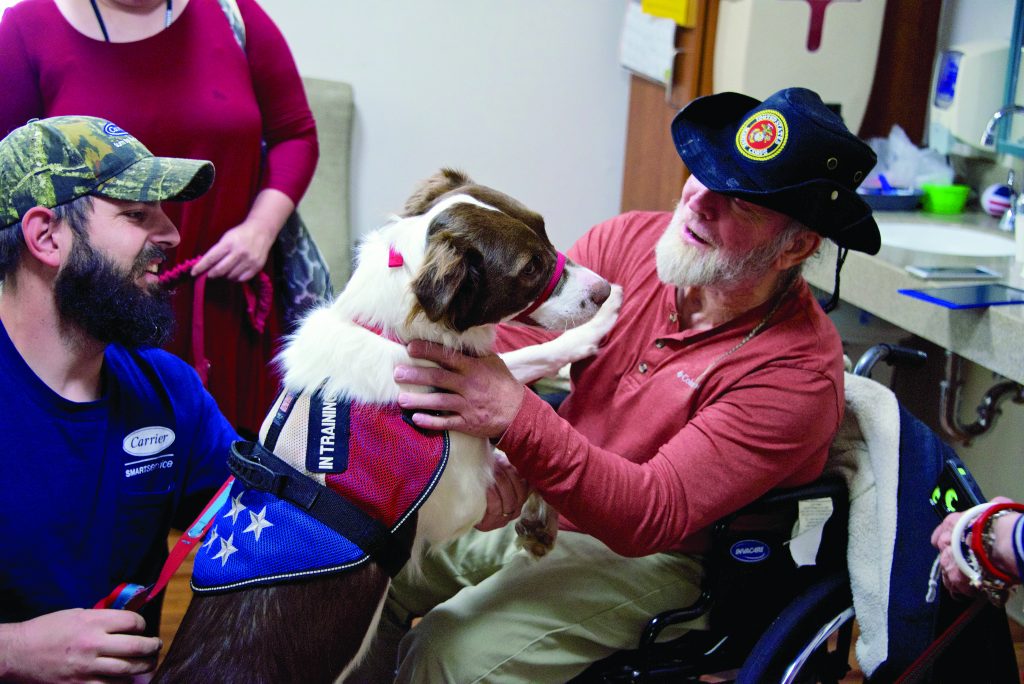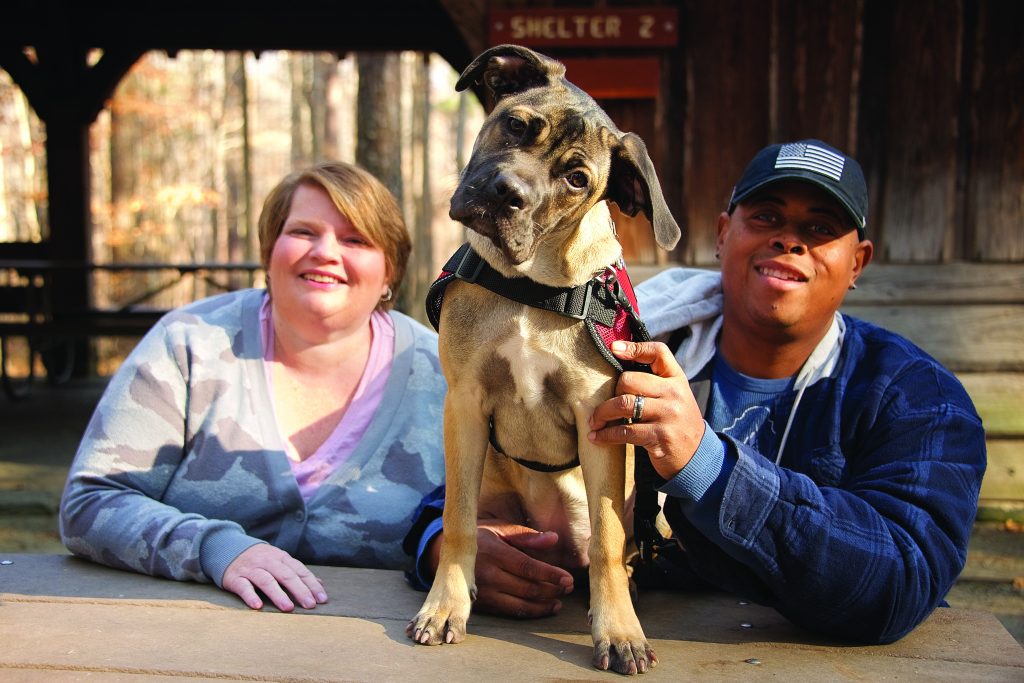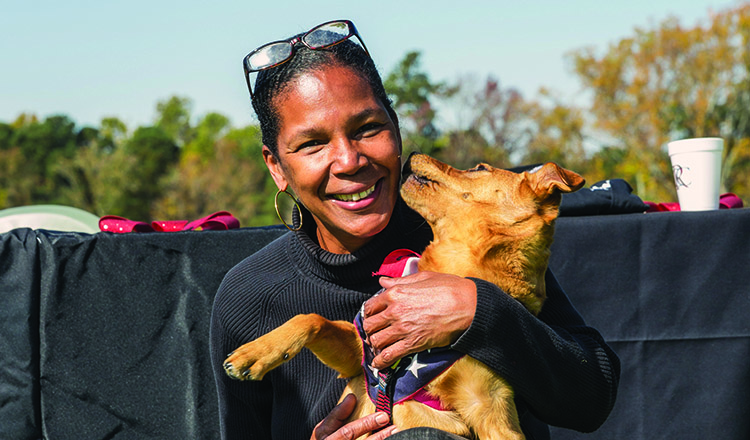Veterinarian leaves career in academia to serve veterans
In ways big and small, Purdue alumni shape the world every day. Across the country and around the globe, thousands of Purdue graduates make a positive impact on their communities.
Timed to coincide with Purdue’s sesquicentennial, the Purdue Alumni Association is working to recognize the untold stories of alumni through Small Steps, Giant Impact.
Stories like that of Terry Morris (MS S’84).
“We started off with a tent, a table, a dog, business cards and brochures, and a bucket in front of Kroger,” says Morris.
After more than 30 years in academia — including a master’s in biology, a doctorate in veterinary medicine, and an internship, residency, and PhD in molecular biology and immunology — Morris felt herself wanting more. Not more success, money, or degrees. More impact.
“I felt like I really wanted to do something where I could directly impact and serve the community,” reflects Morris.
While watching TV, Morris discovered an organization in New York that was working with prisoners to train service dogs for veterans. The idea clicked with her, and she started doing research to see if any comparable organizations existed in the Research Triangle area of North Carolina — Raleigh, Durham, and Chapel Hill.

“They didn’t have any programs like that here for veterans,” says Morris. “That’s how this all came to fruition. Through prayer, then seeing a couple stories on TV, and then understanding the need in the community.”
From there, Vets to Vets United was born — that is, for veterinarians to veterans.
“I actually did not receive a salary until 2016, so for four years there was no income for me coming in.”
To make ends meet, Morris started renting out rooms in her home to boarders.
“I was very blessed to be able to have a home after working all those years,” Morris says. “It’s worth it.”
Today, Vets to Vets United is Morris’s full-time pursuit. She spends the first half of each week working with veterans and their dogs and the second half of the week doing all the background work that goes into running a nonprofit organization: fundraising, grant writing, interviewing candidates for the program, screening dogs, attending meetings with other veterans groups, and building relationships through the community — not to mention taking care of the dogs in the program.
While she’s currently the only person officially on staff, Morris has a core group of volunteers who help make operations run smoothly.
“I couldn’t do it by myself. We have a lot of volunteers who help us out,” says Morris. “North Carolina has the highest shelter euthanasia rate in the nation. The fact that we actually use animals from shelters pulls in volunteers from the animal-loving community. So we have people who want to give back to veterans and people who are animal lovers— and people who are both.”

Morris’s program serves veterans with post-traumatic stress disorder, traumatic brain injury, loneliness, depression, and physical disabilities.
“We had one veteran who was willing to record a video to promote our work,” shares Morris. “He was really honest about the struggles he faced after coming back from overseas. He’d never mentioned any of it to me, and I had known him for over a year.
“Every time I show that video for a presentation, I start to tear up.”
While all of Morris’s clients have their own stories, their own experiences, and their own personalities, Morris sees over and over how the program impacts the veterans she and her volunteers serve.
“To first see them come into the program broken, not really knowing if this is going to work, and then see them six months later, doing things they hadn’t been able to — something as simple as grocery shopping — that’s what keeps me going.”
Three veterans have returned to school. One finished undergraduate work and is now pursuing law school.
“We have people come back and meet the new trainees or volunteer with us. They each have a fight to give back to their fellow veterans and the community. That’s all part of this program: getting them to get back out again and into the community. We want to empower veterans to live more independently, with dignity and purpose.”
Morris has dedicated her work to her father — a Tuskegee pilot who died during his tour of duty — and sister, also a Tuskegee pilot. Both were captains in the US Air Force.

